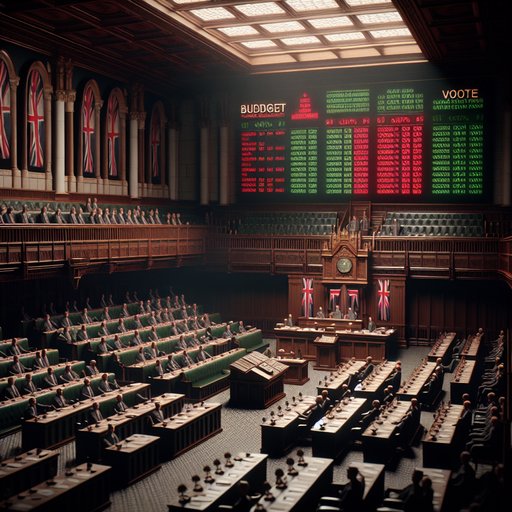
The US government stands on the precipice of another budget showdown as current negotiations intensify amid concerns over an already gargantuan national debt. With the fiscal year end approaching, lawmakers are scrambling to hash out a budget that balances economic growth with fiscal responsibility. Amidst these discussions, questions loom over the sustainability of President Trump's recent budget proposals, which could further balloon the national debt, now sitting at a staggering $37 trillion [5].
In a fraught political landscape, congressional leaders from both parties are entrenched in negotiations, attempting to forge a deal before a government shutdown ensues. The current stalemate stems from disagreements over spending increases proposed by President Trump’s new budget bill, particularly in defense and infrastructure. Critics are wary of the impact these increases may have on the already soaring national debt [1]. Republican legislators generally support the spending hikes, citing the need for bolstering national security and improving critical infrastructure.
Democrats, on the other hand, are pushing for more balanced allocations that include significant investments in healthcare, education, and renewable energy sectors. They claim that these areas are essential for long-term sustainable growth and social equity. This divide reflects broader ideological differences over how to best manage fiscal policy amid mounting economic pressures. The urgent need to strike a compromise is exacerbated by the looming threat of a government shutdown, which could disrupt numerous public services nationwide.
Adding to the complexity, the general public expresses heightened concern over economic challenges, especially given the current strain on family budgets. The rising cost of living and housing affordability, underscored by insights showing the 30% income rule for housing is now obsolete, further amplify these worries [2]. Households are increasingly finding it difficult to make ends meet, highlighting the importance of crafting a budget that addresses these everyday economic pressures. With the clock ticking, the outcry for a comprehensive and viable fiscal strategy grows louder.
Both parties are under immense pressure to ensure a balanced budget that curtails unnecessary expenditure while nurturing essential public services and infrastructure projects. As negotiations progress, the focus remains on achieving a pragmatic solution that can address immediate needs without exacerbating long-term fiscal woes. Whether these efforts will stave off a government shutdown remains to be seen, as all eyes turn to Capitol Hill for resolution.
Sources
- US debt is now $37trn – should we be worried? (BBC News, 2025-07-05)
- The 30% rule is now unrealistic. Here are 3 places you won't have to overextend your budget to afford a home right now. (Business Insider, 2025-07-04)
























